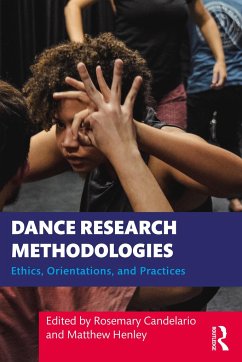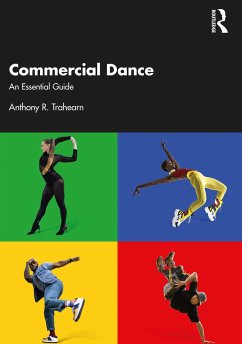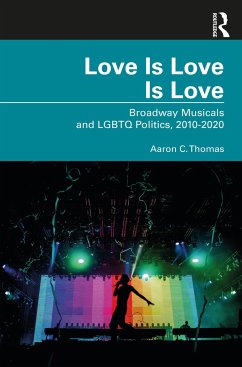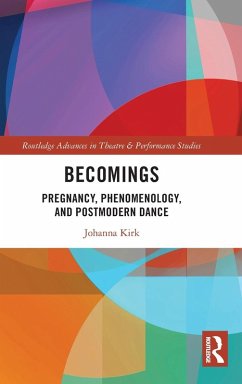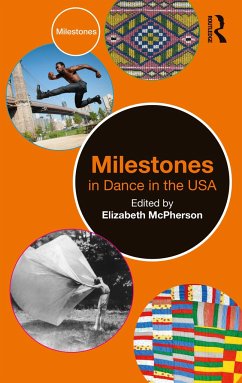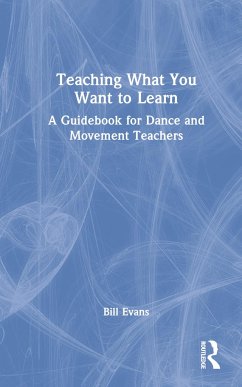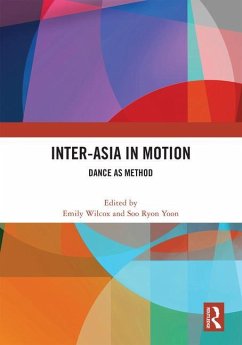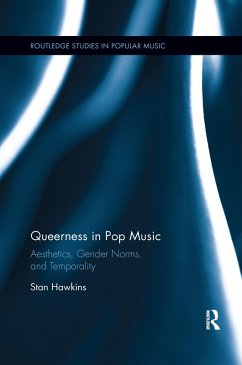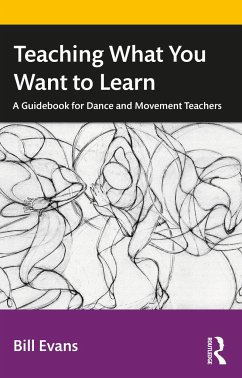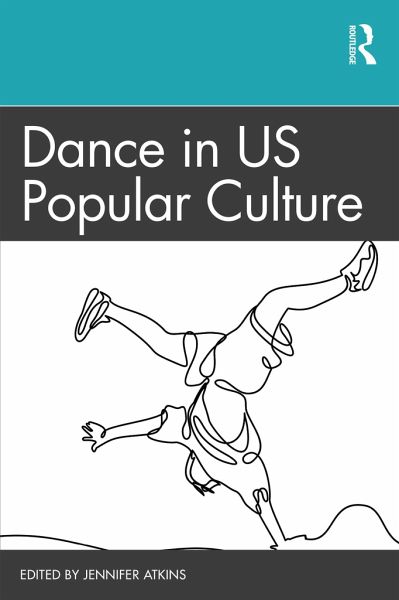
Dance in US Popular Culture
Versandkostenfrei!
Versandfertig in 6-10 Tagen
39,99 €
inkl. MwSt.

PAYBACK Punkte
20 °P sammeln!
This innovative textbook applies basic dance history and theory to contemporary popular culture examples in order to examine our own ways of moving in-and through-culture.By drawing on material relevant to students, Dance in US Popular Culture successfully introduces students to critical thinking around the most personal of terrain: our bodies and our identities. The book asks readers to think about:what embodied knowledge we carry with us and how we can understand history and society through that lenswhat stereotypes and accompanying expectations are embedded in performance, related to gender...
This innovative textbook applies basic dance history and theory to contemporary popular culture examples in order to examine our own ways of moving in-and through-culture.
By drawing on material relevant to students, Dance in US Popular Culture successfully introduces students to critical thinking around the most personal of terrain: our bodies and our identities. The book asks readers to think about:
what embodied knowledge we carry with us and how we can understand history and society through that lens
what stereotypes and accompanying expectations are embedded in performance, related to gender and/or race, for instance
how such expectations are reinforced, negotiated, challenged, embraced, or rescripted by performers and audiences
how readers articulate their own sense of complex identity within the constantly shifting landscape of popular culture, how this shapes an active sense of their everyday lives, andhow this can act as a springboard towards dismantling systems of oppression
Through readings, questions, movement analyses, and assignment prompts that take students from computer to nightclub and beyond, Dance in US Popular Culture readers develop their own cultural sense of dance and the moving body's sociopolitical importance while also determining how dance is fundamentally applicable to their own identity.
This is the ideal textbook for high school and undergraduate students of dance and dance studies in BA and BfA courses, as well as those studying popular culture from interdisciplinary perspectives including cultural studies, media studies, communication studies, theater and performance studies.
Chapter 11 of this book is freely available as a downloadable Open Access PDF at http://www.taylorfrancis.com under a Creative Commons Attribution CC-BY 4.0 license.
By drawing on material relevant to students, Dance in US Popular Culture successfully introduces students to critical thinking around the most personal of terrain: our bodies and our identities. The book asks readers to think about:
what embodied knowledge we carry with us and how we can understand history and society through that lens
what stereotypes and accompanying expectations are embedded in performance, related to gender and/or race, for instance
how such expectations are reinforced, negotiated, challenged, embraced, or rescripted by performers and audiences
how readers articulate their own sense of complex identity within the constantly shifting landscape of popular culture, how this shapes an active sense of their everyday lives, andhow this can act as a springboard towards dismantling systems of oppression
Through readings, questions, movement analyses, and assignment prompts that take students from computer to nightclub and beyond, Dance in US Popular Culture readers develop their own cultural sense of dance and the moving body's sociopolitical importance while also determining how dance is fundamentally applicable to their own identity.
This is the ideal textbook for high school and undergraduate students of dance and dance studies in BA and BfA courses, as well as those studying popular culture from interdisciplinary perspectives including cultural studies, media studies, communication studies, theater and performance studies.
Chapter 11 of this book is freely available as a downloadable Open Access PDF at http://www.taylorfrancis.com under a Creative Commons Attribution CC-BY 4.0 license.





